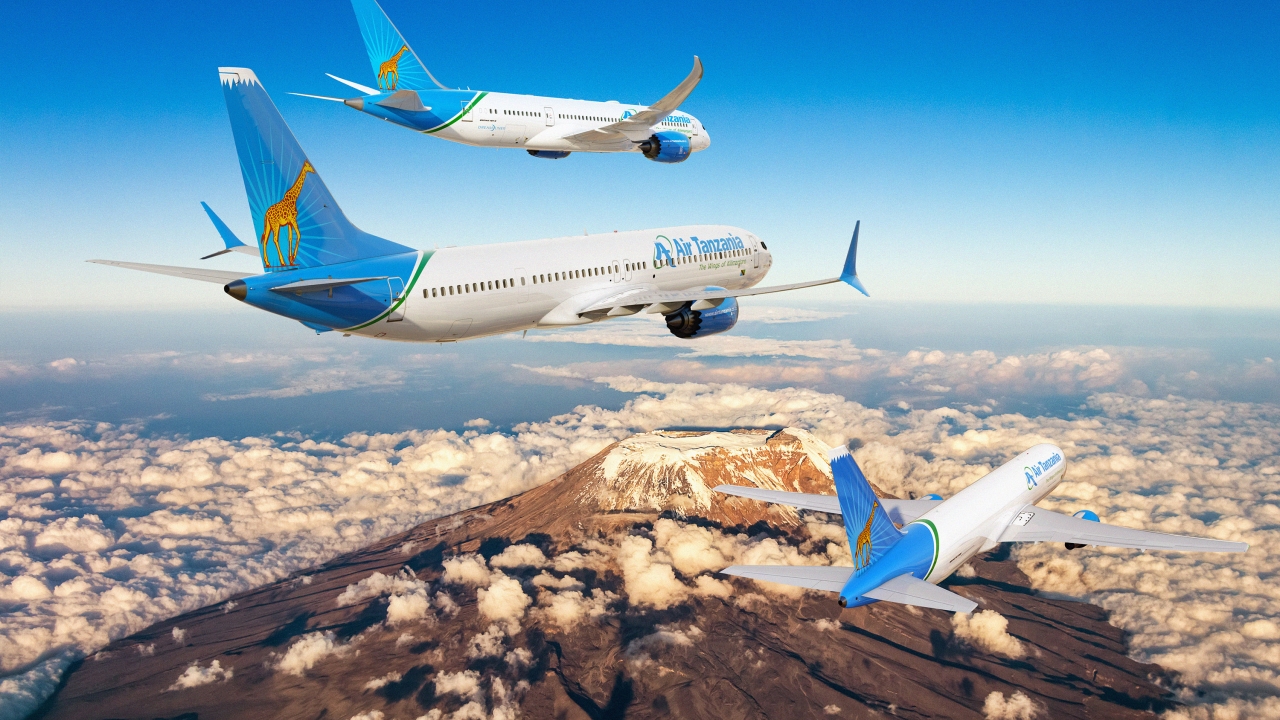Profit that is purpose built
There is a saying in the Republic of Niger that accomplishment of purpose is better than making a profit. However, as Victoria Moores reports, Niger Airlines is aiming for both and is about to make money after its third year of operations.

Niamey-based Niger Airlines was founded on July 31, 2012 and launched operations from Diori Hamani International Airport on May 4, 2014, filling the gap left when Air Niger ceased operations.
Today the airline operates a pair of single-class Fokker 50s, leased from Palestinian Airlines, which it uses to link Niamey in the far south west corner of the country with the ancient city of Agadez in central Niger, Diffa in the south east, Maradi and former capital city Zinder in the south, as well as Tahoua, also in the south west.
Niger is a land-locked country, bordered by Algeria, Benin, Burkina Faso, Chad, Libya, Mali and Nigeria… and it is huge. To put Niger’s vast size in perspective, it ranks as the largest country in west Africa and is roughly twice the size of France or the US state of Texas, with more than 80% of its land covered by the Sahara Desert.
“Niger is a very, very big country and all the towns are a long way apart,” said Niger Airlines managing director, Abdoul Aziz Larabou. “It is not easy to travel by road, so that is why we created the company, to help the Niger economy.”
The country is also blessed with natural resources including coal, gold, gypsum, iron ore, petroleum, tin, phosphates, salt and uranium, but – like many of its African neighbours – it has been hit by the commodity crisis. “It has affected the Niger economy in terms of oil, petrol, gas and gold, but it has caused pain everywhere,” Larabou said.
Yet this crunch has not been enough to set the airline back with its plans. After two years of start-up losses, Niger Airlines is poised to turn a profit as it exits its third year.
“The market is big enough,” Larabou said. “Even if we focus only on domestic flights, we will be profitable, but we will make more if we go beyond Niger.”
With three years of home-country operations under its belt, the fledgling airline is looking to branch further afield in 2017. By the end of the year, Niger Airlines is planning to phase out its two Fokker 50s and replace them with a pair of used ATR 72-500s, which it will use to open up new links with other west African countries. If the ATR 72-500s work out well, they could be upgraded to newer ATR72-600s within about two years.
“We started with the Fokker 50 because it was low cost. Now we are going to move forward with ATR,” Larabou said. “We started slowly; we knew it wasn’t good for us to become bigger at once.”
While the ATR 42 might be a more natural replacement for the Fokker 50s, Larabou said the current fleet is operating at an 80% load factor, so the larger ATR 72 was a natural choice to modernise and grow Niger Airlines’ business.
Potential destinations under the expansion include Accra in Ghana, Bamako in Mali, Cotonou in Benin, Dakar in Senegal, Lome in Togo, N’Djamena in Chad and Ouagadougou in Burkina Faso.
After one year of ATR 72 operations, Niger Airlines is planning to extend its wings and reach again.
“Afterwards, we are planning to go to central Africa and get two Airbus A320s to serve Libreville (Gabon), Pointe-Noire (Republic of the Congo), Douala (Cameroon) and Yaoundé (Cameroon),” Larabou said. “We are working with our finance partners and shareholders to buy the two Airbus aircraft, which we should get by 2019.
“Niger is hosting a big conference in 2019 – all the countries will be there – so the government is hoping that Niger will be ready before 2019.”
Niger Airlines is 100% privately owned. “The government is behind us. We don’t have a national carrier and the government don’t want to create one, so they are leaving this sector to private companies. We had one competitor that started operations after us, but that has closed down. It was Fly SkyJet, but their operation was chartered, not scheduled.”
However, Larabou sees potential value in partnerships. Niger Airlines is in talks over a possible memorandum of understanding with Tunisair, although this has not yet been finalised. Likewise, tentative partnership talks are under way with Turkish Airlines. “We are waiting on our new aircraft,” Larabou said.
Finally, by 2022, Niger Airlines is hoping to secure a pair of A330s to serve the European cities of Brussels and Paris, as well as Dubai in the Middle East, as the young carrier seeks to fulfil its purpose of connecting Niger to the world.
Niger is on the border between the Saharan and sub-Saharan regions and is one of the hottest countries in the world. It is nicknamed the frying pan of the world and raindrops have been known to evaporate before they hit the ground. Market conditions may be challenging, but Niger’s people are used to feeling the heat and Larabou sees a sunny future ahead. “The African aviation market is very big; everyone can find a place in the market,” he said.
Stay up to date
Subscribe to the free Times Aerospace newsletter and receive the latest content every week. We'll never share your email address.

